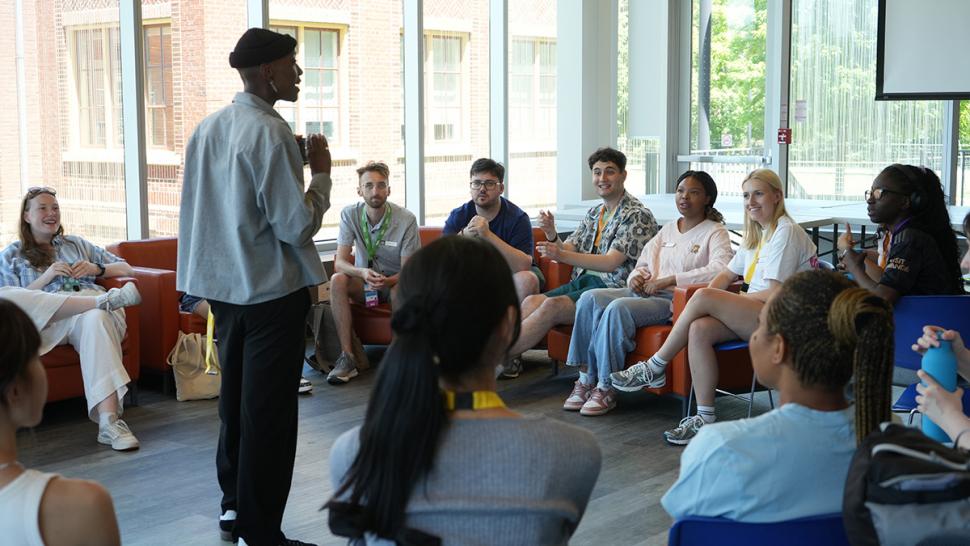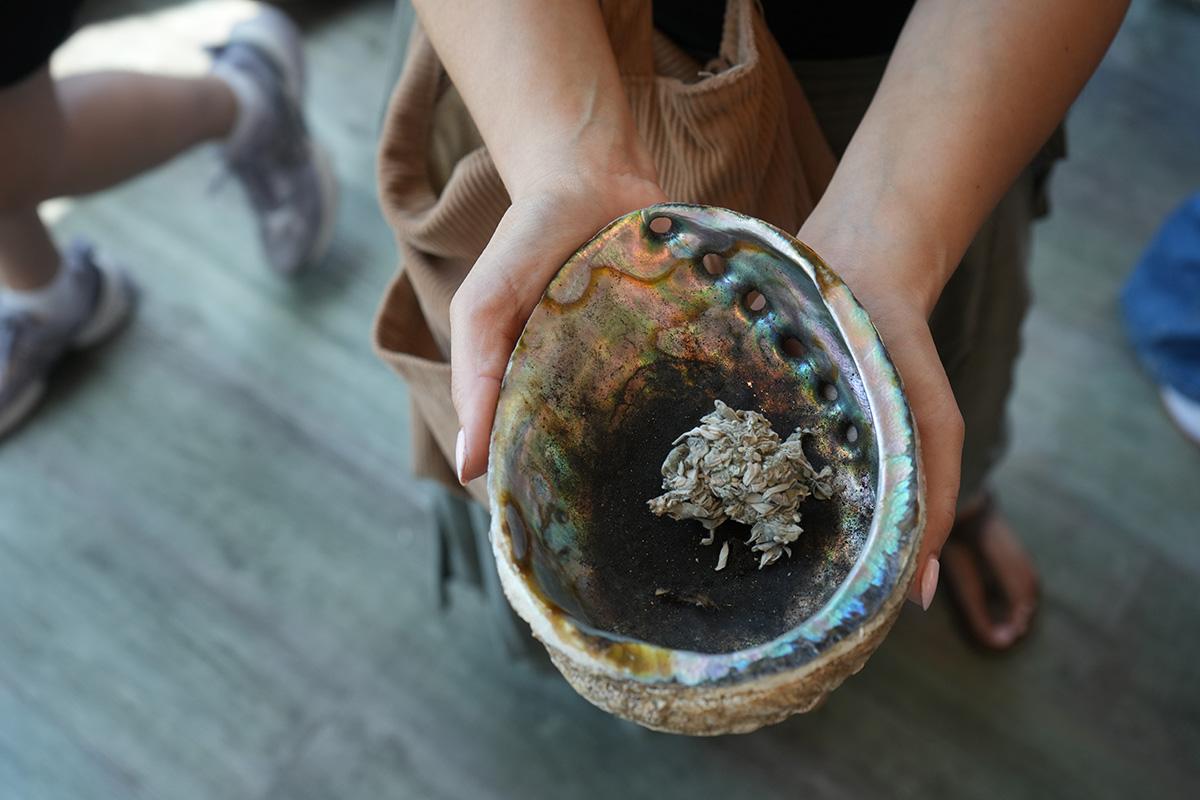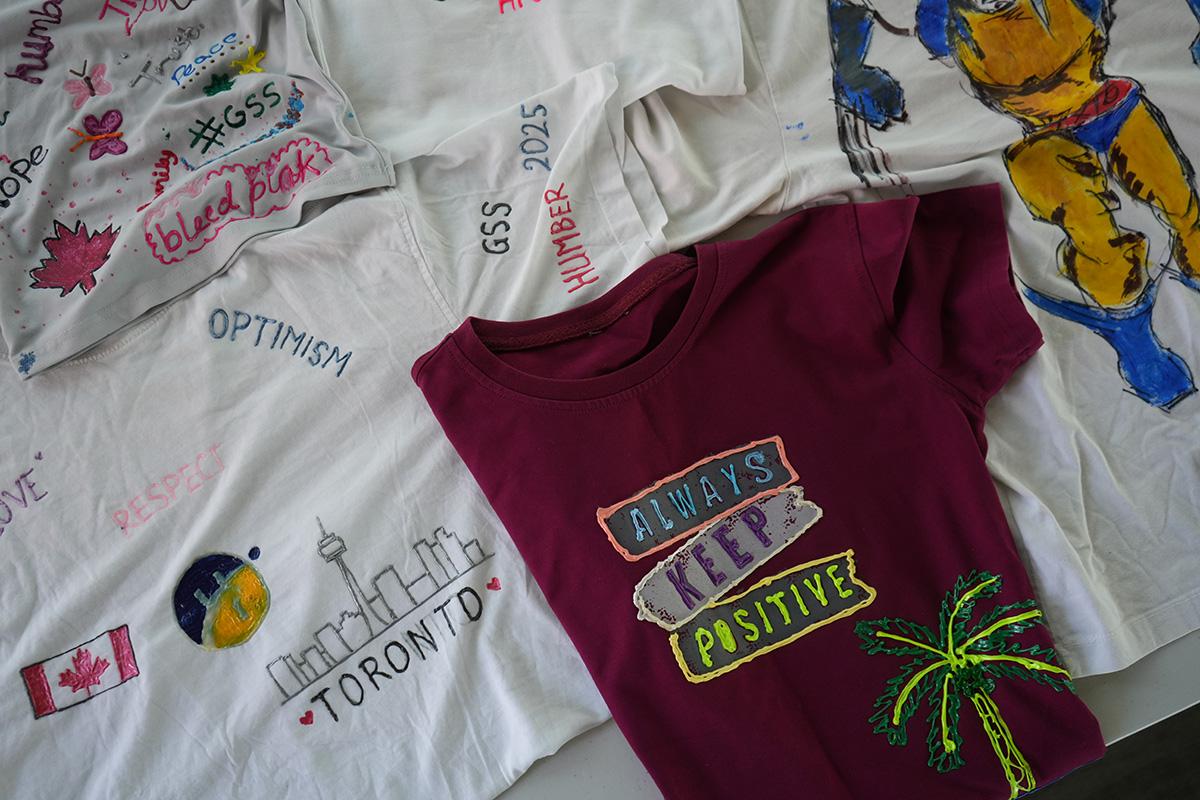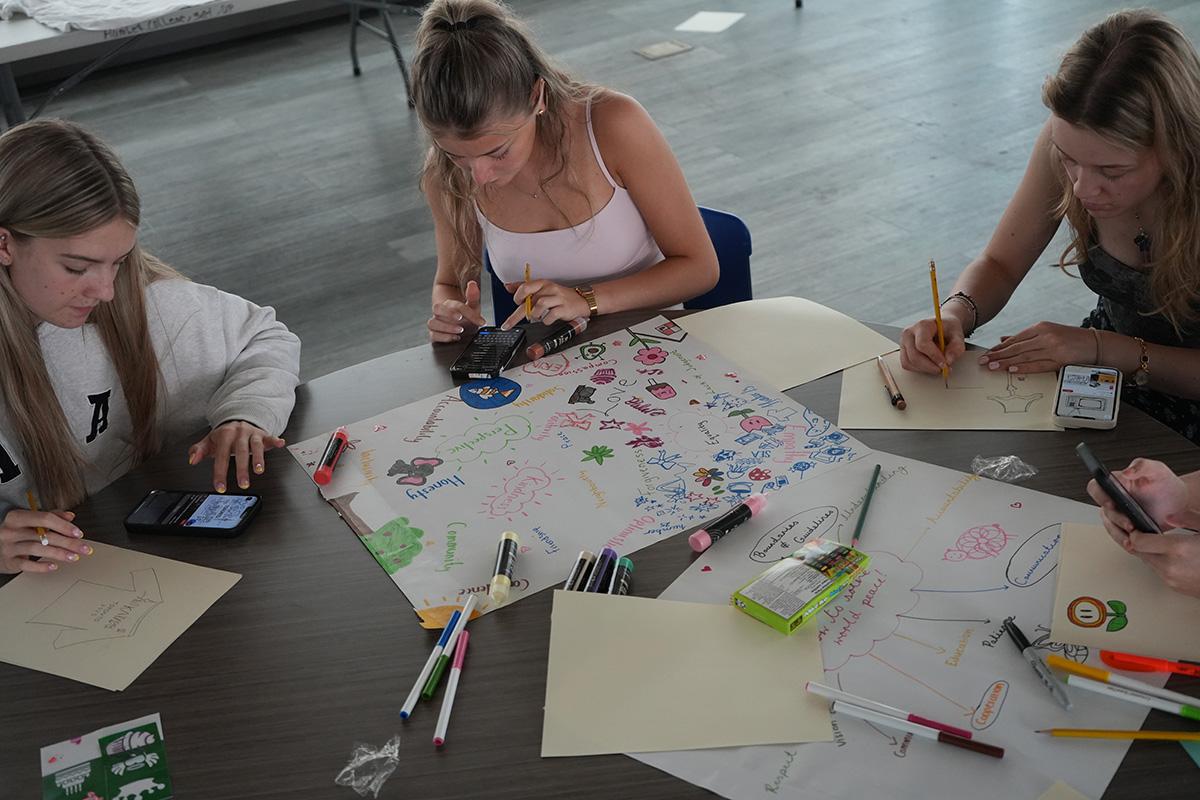
Students enjoy a lively game of charades during their downtime at the Creative Thinking Bootcamp.
Humber Polytechnic’s Global Summer School 2025 kicked off this summer with the Faculty of Media, Creative Arts, and Design’s (FMCAD) first-ever Creative Thinking Bootcamp.
Led by Jennifer Gordon, director of the Centre for Creative Business Innovation (CCBI) and Humber Galleries, the one-week intensive experience brought together more than 30 visiting international students to explore strategies to unlock their creative potential and collaborate cross-culturally. This event, running from July 7 to 11, immersed students in a hands-on learning environment where they’re not just learning about creativity - but living it as well.
From day one, students participated in activities and dialogue that foster self-discovery and are tailored towards their educational goals. They began identifying their core personal values and exploring what it means to approach problems with a creative lens. Through various guided activities and reflective exercises, the students began to understand how their own lived experiences can shape innovative thinking.
“On the first day, I was quite nervous, I felt a bit shy, and like I wasn't going to unlock my creative side,” said Latipha Williamson, who had come from Nottingham Trent University in the United Kingdom. “Now, on the third day, I feel more confident in my creativity, and I feel like I can unlock more potential.”
One notable moment was the Indigenous smudging ceremony, which grounded participants in the land they're learning on and invited them into a deeper understanding of the Lakeshore Campus’ history and culture.
“I felt really welcomed into the community, and it felt really nice to be introduced to the culture. It also felt really grounding, especially on the first day, to help introduce ourselves to everyone,” said Sarah Owen, also from Nottingham Trent University.

This opened the door to more personal discussions of identifying the values that guide their decisions and perspectives in their daily life. They didn't simply write their values down – they used t-shirts as a canvas and wore these expressions of their core beliefs proudly. Each shirt became a canvas of their identity and reflected who they are and what they stand for.

For a homework assignment, students stepped behind their cameras and took photos of things around them that symbolized personal value. They incorporated various ideas such as pictures of nature, an iced coffee, other students they made friends with, and created meaning behind their images.
On its final days, the bootcamp proved to be more than an optional add-on for students studying during the Humber Global Summer School program. Students are exploring creative techniques and when to use them and are encouraged to apply the skills they’ve learned towards the rest of their time at Humber.
“Beforehand, my values were there, but I never explored them,” said Rayhan Bungougou from Liverpool John Moores University in the United Kingdom. “They were just there and that’s it. I learned a little bit about how they can actually help me be creative in the form of art, even though my art looks disastrous.”
As the Bootcamp came to an end, the students became more comfortable and confident in their creative skills. After a week of considering different aspects of their life with a creative mind and transforming conversations into deeper meanings with color and collaborations, the students can bridge the gap between themselves as individuals and their communities back home, especially in times of conflict and crisis.
The group has been demonstrating creativity as a shared human language through exercises on nonverbal communication and have taken on difficult conversations about loneliness. They continue to identify how disconnection from community on a personal level can affect different aspects of life and create conditions of violence. The students engaged in raw and honest dialogue with one another and drew from their lived experiences back home and social conditions around the world.
“This was pretty hard at first, because every country has different ways of communicating”, said Jocelyn Huang from Fooyin University in Taiwan. “But through the activities I found common things between a few of us.”

Since day one, the Creative Thinking Bootcamp has empowered the students to embrace their vulnerability as a way to connect with others and the environment surrounding them – and give them the strength to trust themselves to make bold creative decisions. Through Gordon ‘s leadership, they are leaving the week with new ways of contributing effectively to their communities and with the knowledge to be more innovative leaders.